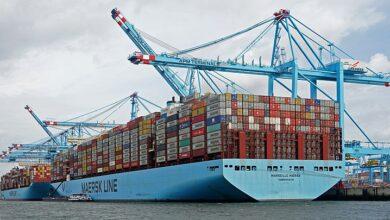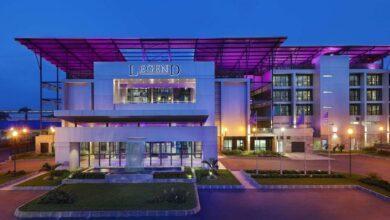
9 Political Factors Affecting Business In Nigeria
Political Factors Affecting Business In Nigeria – Political factors refer to the actions and decisions of government bodies and agencies that can impact the operations and success of a business. These can include laws and regulations, tax policies, trade agreements, and political stability. Examples of specific political factors that may affect a business include changes in tax laws, trade tariffs, or government subsidies.Information Guide Nigeria
Additionally, political stability and government effectiveness can also be important factors to consider as they can impact a company’s ability to conduct business and achieve its objectives. Understanding and monitoring political factors are important for companies as they can have a significant impact on their ability to conduct business and achieve their objectives.
👉 Relocate to Canada Today!
Live, Study and Work in Canada. No Payment is Required! Hurry Now click here to Apply >> Immigrate to CanadaWhat are Political Factors?
A political factor refers to any aspect or element of the political environment that may impact the performance or operations of an organization or industry. This can include things like government policies, political stability, and the actions of political leaders or parties. Political factors can have a significant impact on businesses, as they can create opportunities or challenges that must be navigated to be successful.
Read Also: 10 Social Factors Affecting Business In Nigeria
Types of Political Factors in Nigeria
Political factors refer to the various laws, regulations, and government policies that can affect a business or industry. Some examples of political factors include:Political Factors Affecting Business
- Tax Policies: Government policies related to taxes, such as the rate of corporate tax and the types of deductions that businesses can claim, can have a significant impact on a company’s profitability.
- Trade Policies: Government policies related to international trade, such as tariffs and quotas, can affect a company’s ability to import or export goods and services.
- Labor Laws: Laws and regulations related to the treatment of employees, such as minimum wage laws and worker safety regulations, can affect a company’s labor costs and potential liability.10 Best University In Nigeria With Low School Fees
Advantages of Political Factors in Nigeria
Political factors can have several advantages, including:
- Stability and Predictability: A stable political environment can provide a sense of predictability for businesses, allowing them to make long-term plans and investments.
- Access to Resources: Political connections and influence can help businesses access resources, such as government contracts and funding.50 Best University In Nigeria To Study Law
- Protection of Property Rights: A strong legal and political system can protect businesses’ and individuals’ property rights, which can encourage investment and economic growth.
What is a Business?
A business is an organization or enterprise engaged in commercial, industrial, or professional activities. Its primary purpose is to generate income by providing goods or services to customers. Businesses can be organized in various forms, such as sole proprietorships, partnerships, corporations, and limited liability companies. They can also operate in different sectors, such as manufacturing, retail, and services.
Read Also: 10 Environmental Factors Affecting Agricultural Production In Nigeria
Types of Business in Nigeria
There are several types of businesses that operate in Nigeria, some of the most common include:NYSC Portal
- Limited Liability Company (LLC): An LLC is a type of business that offers the personal asset protection of a corporation, but with the tax benefits of a partnership.
- Cooperative: A cooperative is a type of business that is owned and controlled by its members, who share in the profits and losses of the business.
- Microfinance Banks: Microfinance Banks are a type of business that provides small loans to individuals, businesses, and groups who are unable to obtain credit from traditional banks.
All these types of businesses have their advantages and disadvantages, it’s important to research and determine which one would be the best fit for your business idea and goals.
👉 Relocate to Canada Today!
Live, Study and Work in Canada. No Payment is Required! Hurry Now click here to Apply >> Immigrate to CanadaAdvantages of Business in Nigeria
Nigeria offers several advantages for businesses, including:JAMB Portal
- Natural Resources: Nigeria is rich in natural resources, such as oil and gas, agricultural land, and solid minerals. This provides opportunities for businesses in sectors such as energy, agriculture, and mining.
- Economic Growth: Nigeria’s economy is growing rapidly, with GDP growth rates averaging around 6% in recent years. This provides a positive economic environment for businesses to operate in.
- Strategic Location: Nigeria is located in West Africa and serves as a gateway to other countries in the region. This makes it an ideal location for businesses looking to expand into other parts of Africa.
Read Also: 10 Problems Facing Manufacturing Industries In Nigeria
How do Political Factors affect Business in Nigeria?
Nigeria has a long history of political instability, corruption, and economic mismanagement, which has had a significant impact on the business environment in the country.
In the 1960s and 1970s, Nigeria experienced a period of economic growth and prosperity as a result of its abundant natural resources, particularly oil. However, this prosperity was short-lived as the government’s mismanagement of the economy and rampant corruption led to economic decline and political instability.
During the 1980s and 1990s, the Nigerian government implemented a series of economic reforms, including structural adjustment programs, aimed at stabilizing the economy and attracting foreign investment. However, these reforms were often poorly implemented and did not result in the intended economic growth.JAMB Result
In the 2000s, Nigeria made some progress in addressing corruption and improving the business environment, but political instability and corruption continued to be major obstacles for businesses operating in the country. In addition, the government’s inconsistent policies and lack of infrastructure also presented challenges for businesses.200 romantic love message for her
More recently, the political situation in Nigeria has been relatively stable, but corruption remains a significant problem, and the government’s ability to implement effective economic policies and attract foreign investment remains limited. The business environment in Nigeria is still challenging, but there have been some improvements in recent years, including the ease of doing business and the investment climate.
Read Also: 10 Factors Affecting Engineering In Nigeria
9 Political Factors affecting Business in Nigeria
These are some of the political factors affecting business in Nigeria.
- Corruption: Nigeria has a long-standing issue with corruption, which affects the ability of businesses to operate fairly and efficiently.
- Bureaucracy: The government bureaucracy in Nigeria can be slow and inefficient, making it difficult for businesses to navigate the legal and regulatory landscape.
- Political Instability: Political instability can disrupt business operations and make it difficult for companies to plan for the future.
- Economic Policies: The government’s economic policies, such as currency controls and import tariffs, can have a significant impact on businesses operating in Nigeria.
- Infrastructure: The lack of reliable infrastructure, such as power and transportation, can make it difficult and expensive for businesses to operate in Nigeria.
- Security: The security situation in Nigeria can be unstable, and businesses may be at risk of theft, kidnapping, and other forms of crime.105 good morning messages
- Labor Laws: The labor laws in Nigeria can be restrictive, making it difficult for businesses to hire and retain employees.
- Taxation: High taxes and inefficient tax collection can make it difficult for businesses to operate in Nigeria.
- Government Intervention: The government’s involvement in various sectors of the economy can limit the ability of private businesses to compete and grow.
Read Also: 10 Factors Affecting Development In Nigeria
Conclusion
Political factors play a significant role in the business environment in Nigeria. The country’s history of corruption and lack of stable political institutions have hindered its economic growth and foreign investment. However, recent efforts to combat corruption and improve the investment climate may lead to better conditions for businesses in the future. Additionally, the government’s role in infrastructure development and regulation of certain industries can also have a major impact on the success of businesses operating in the country.
Check JAMB RESULT
Check and Confirm: How much is Dollar to Naira








